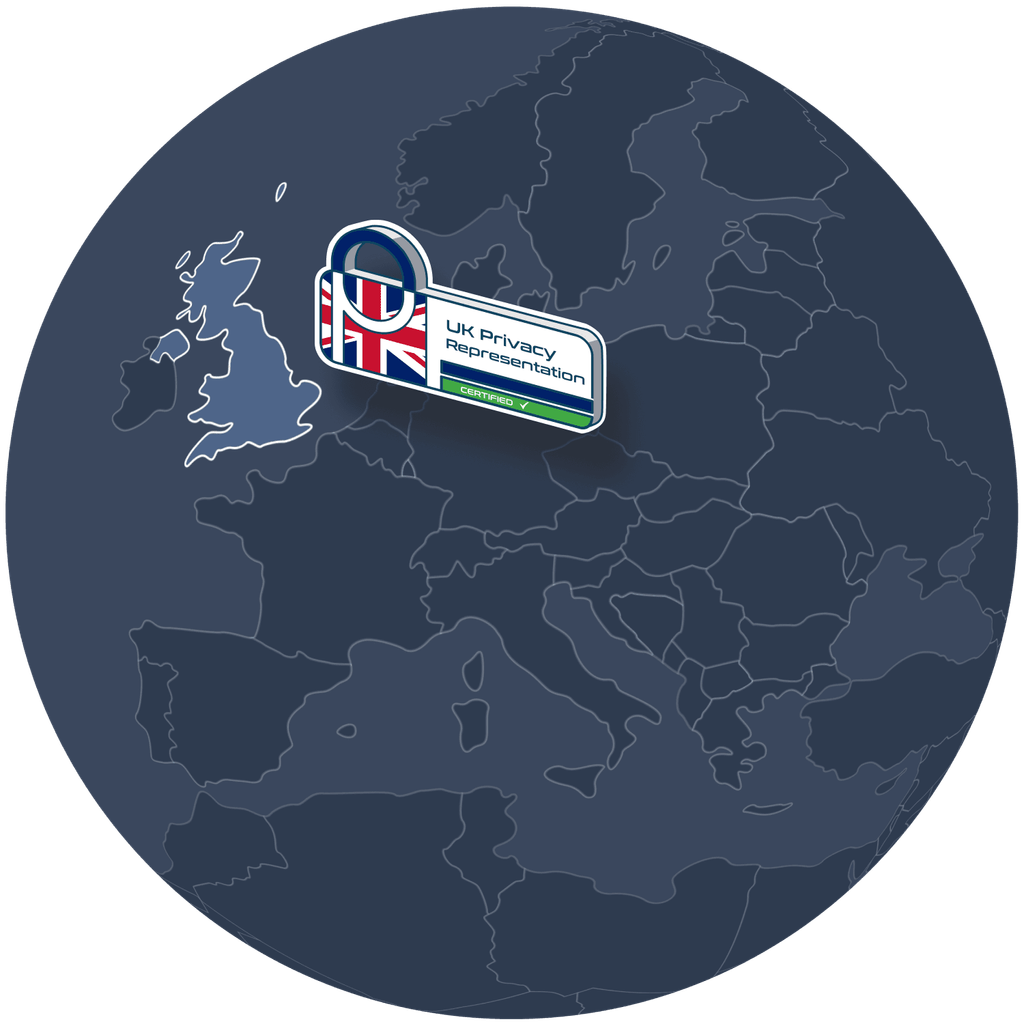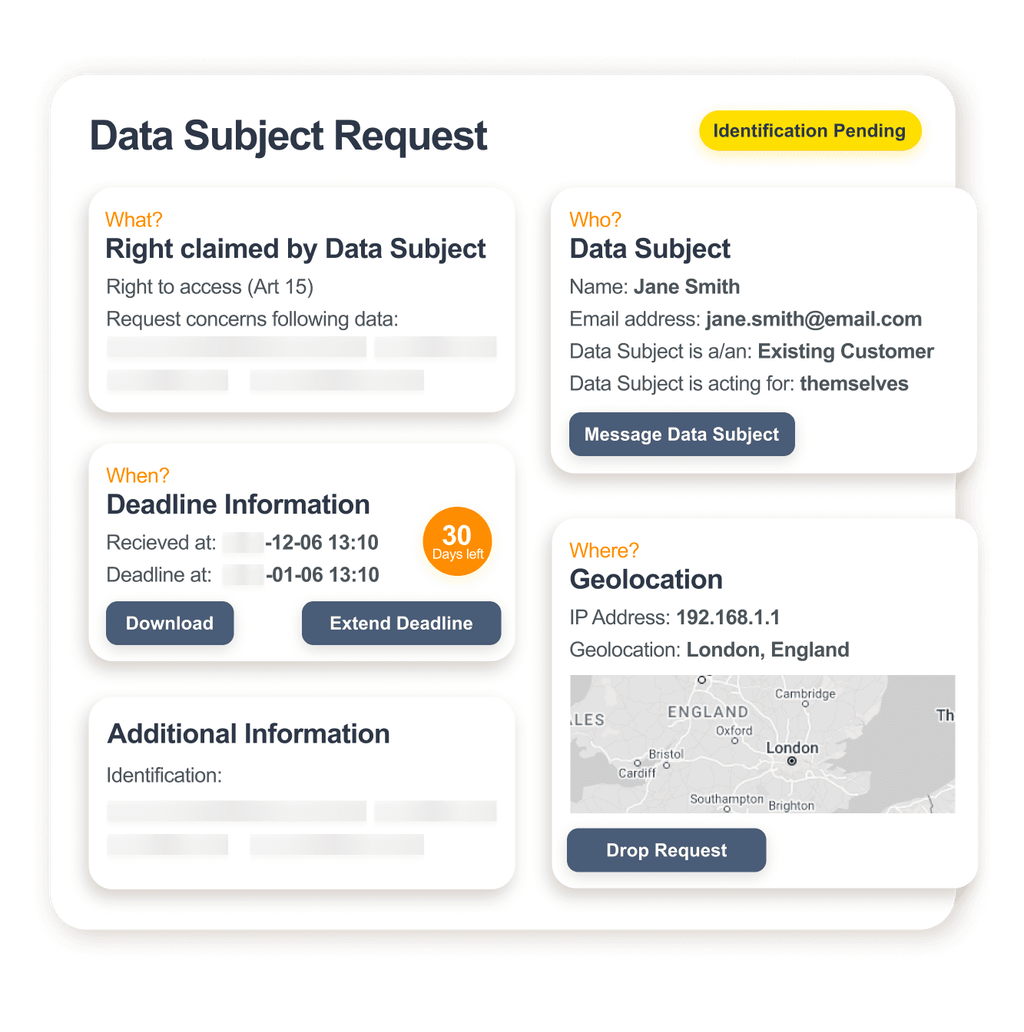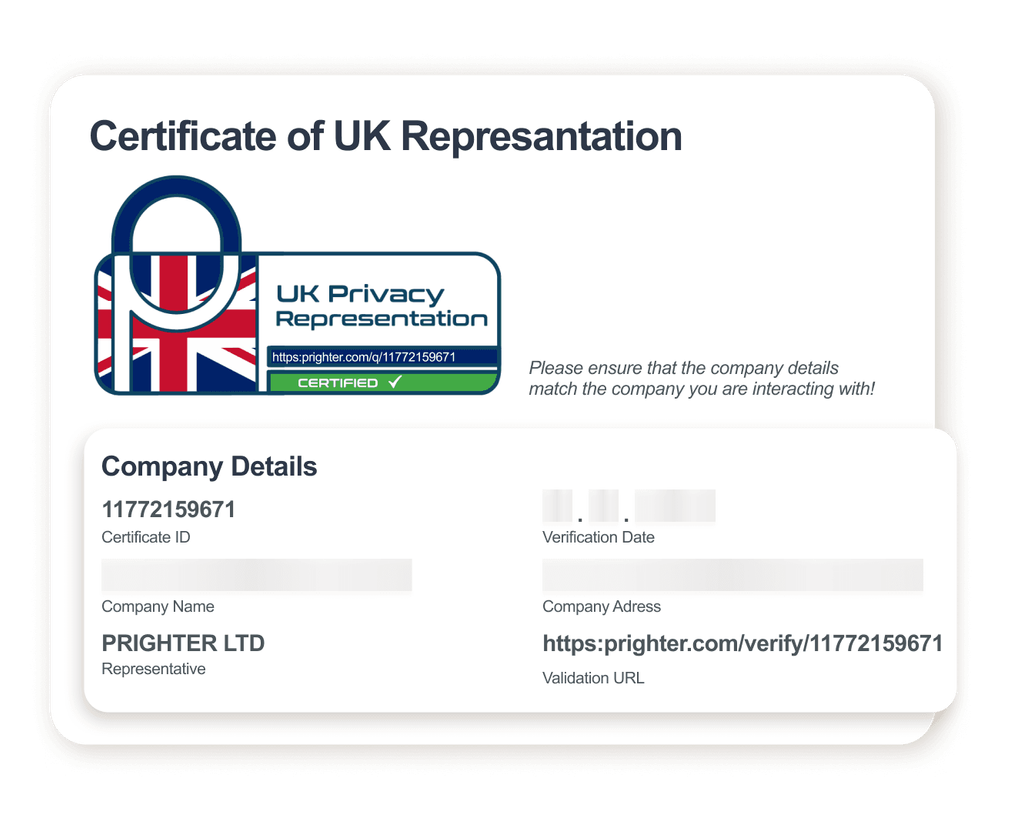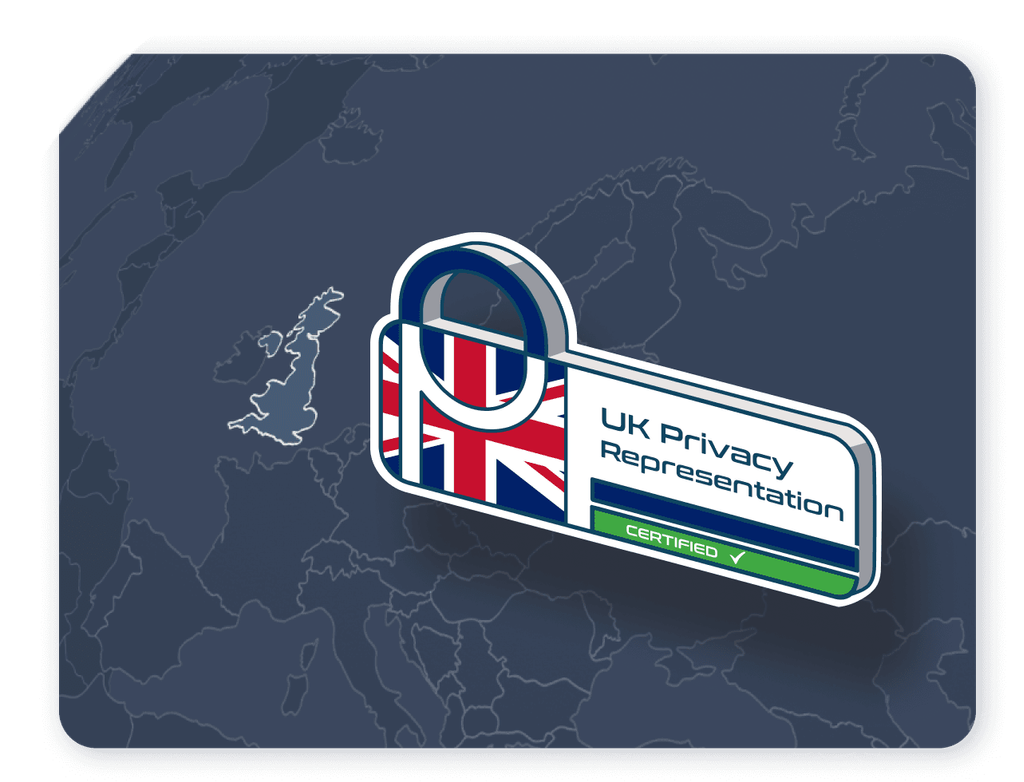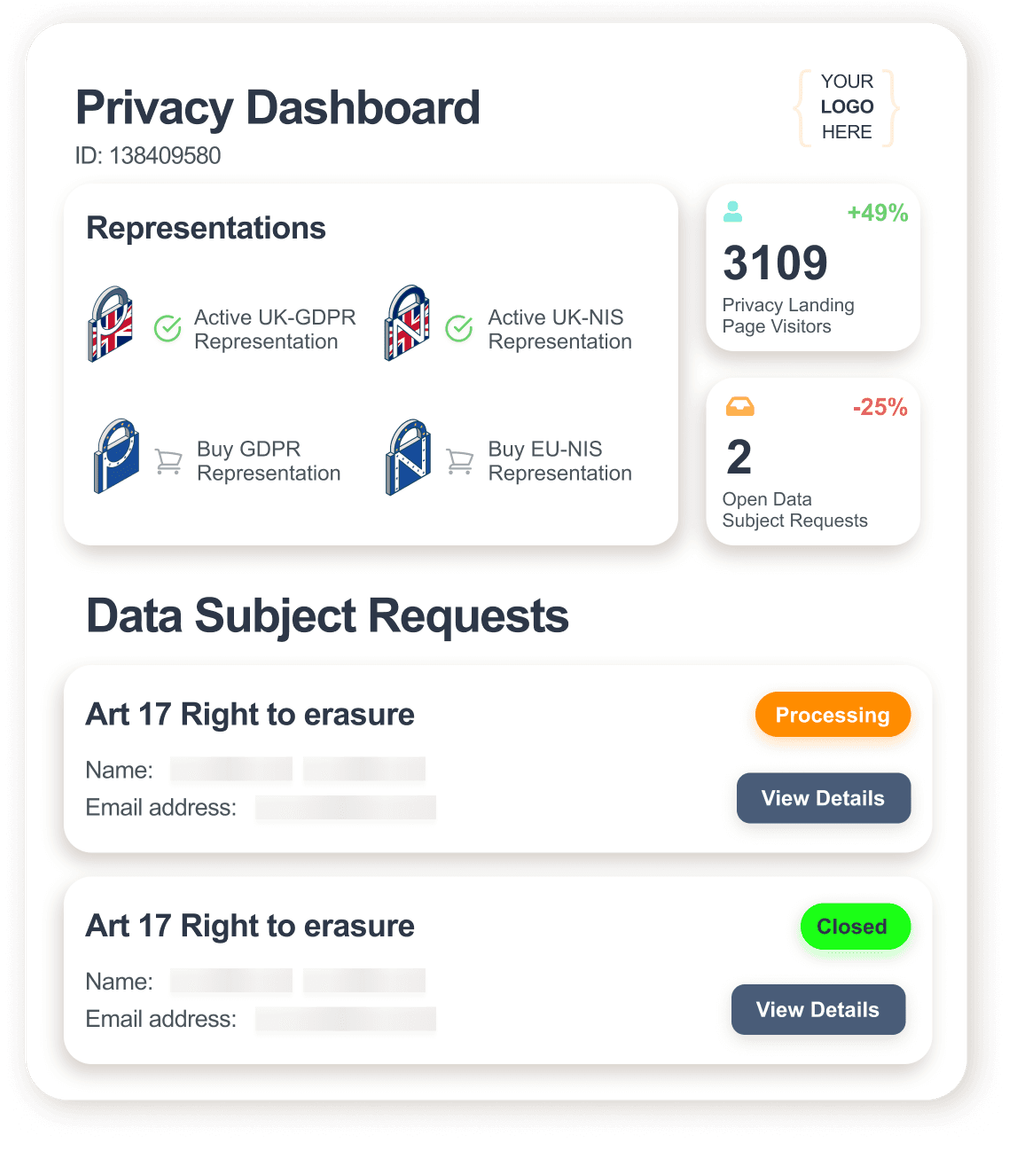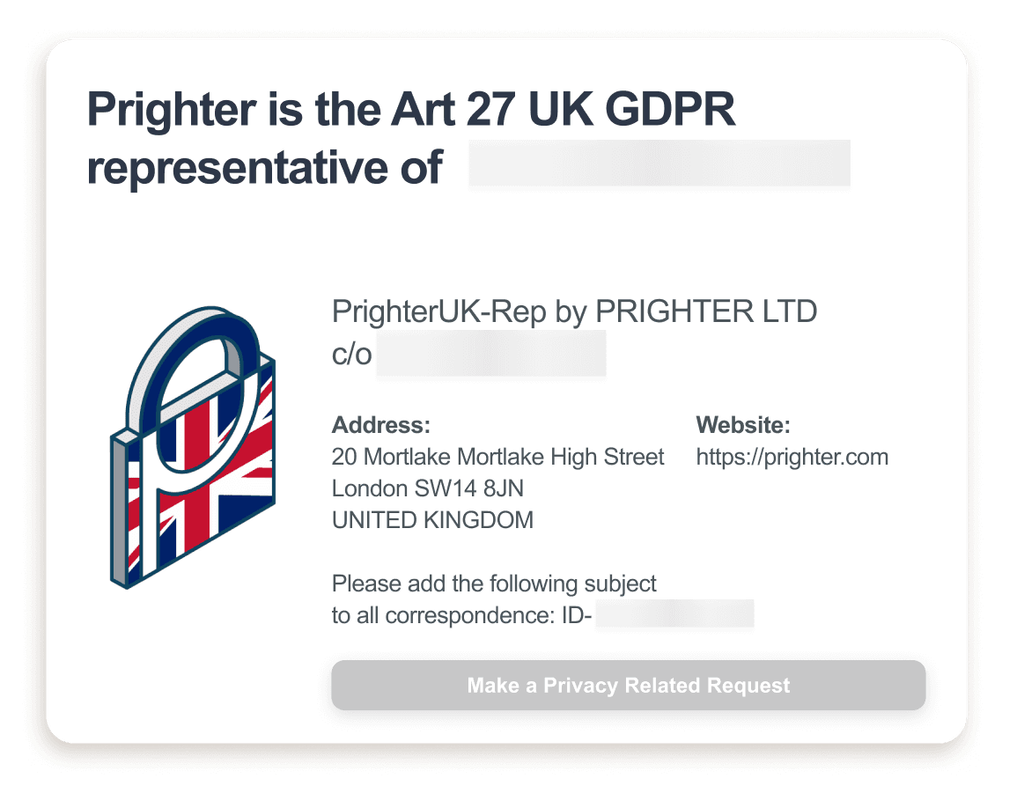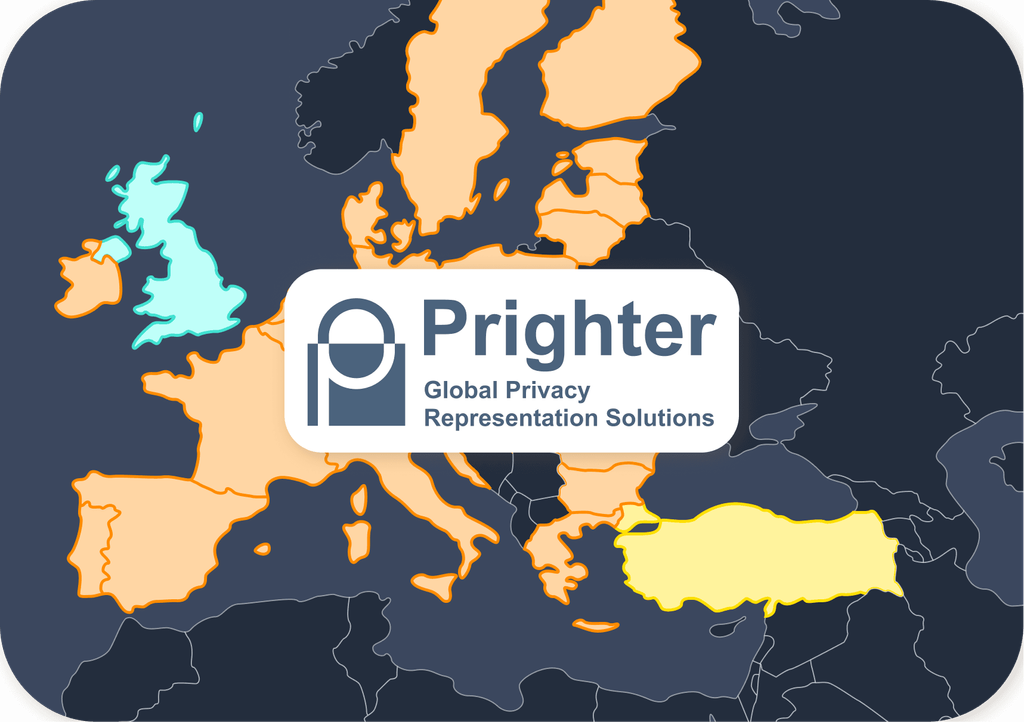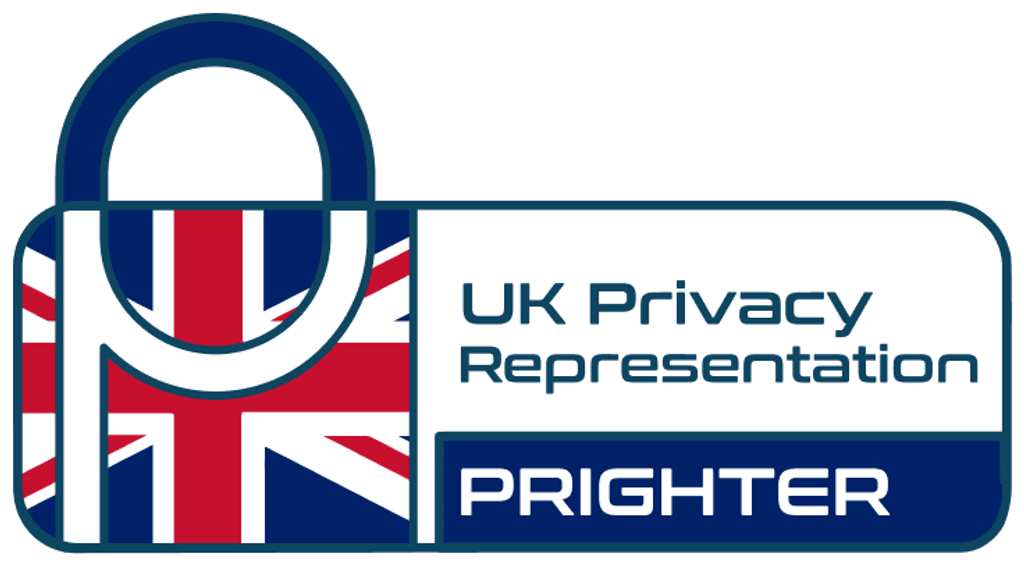







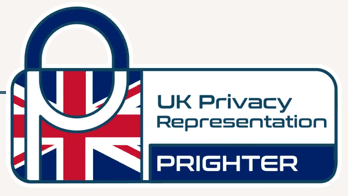
Do you reach out to the UK market? Appoint your UK Representative
Get ready for the UK market after BREXIT by appointing us as your privacy representative. Benefit from both our expertise as privacy professionals and our privacy management software.
Does my company need an Art. 27 UK privacy representative in the UK?
Companies without an entity, branch, or other establishment in the UK are required to appoint a privacy representative in the UK according to Art. 27 UK-GDPR if they:
- offer goods and services to individuals in the UK (e.g. offering payments in pounds) or
- monitor their behaviour (e.g. cookie profiling).
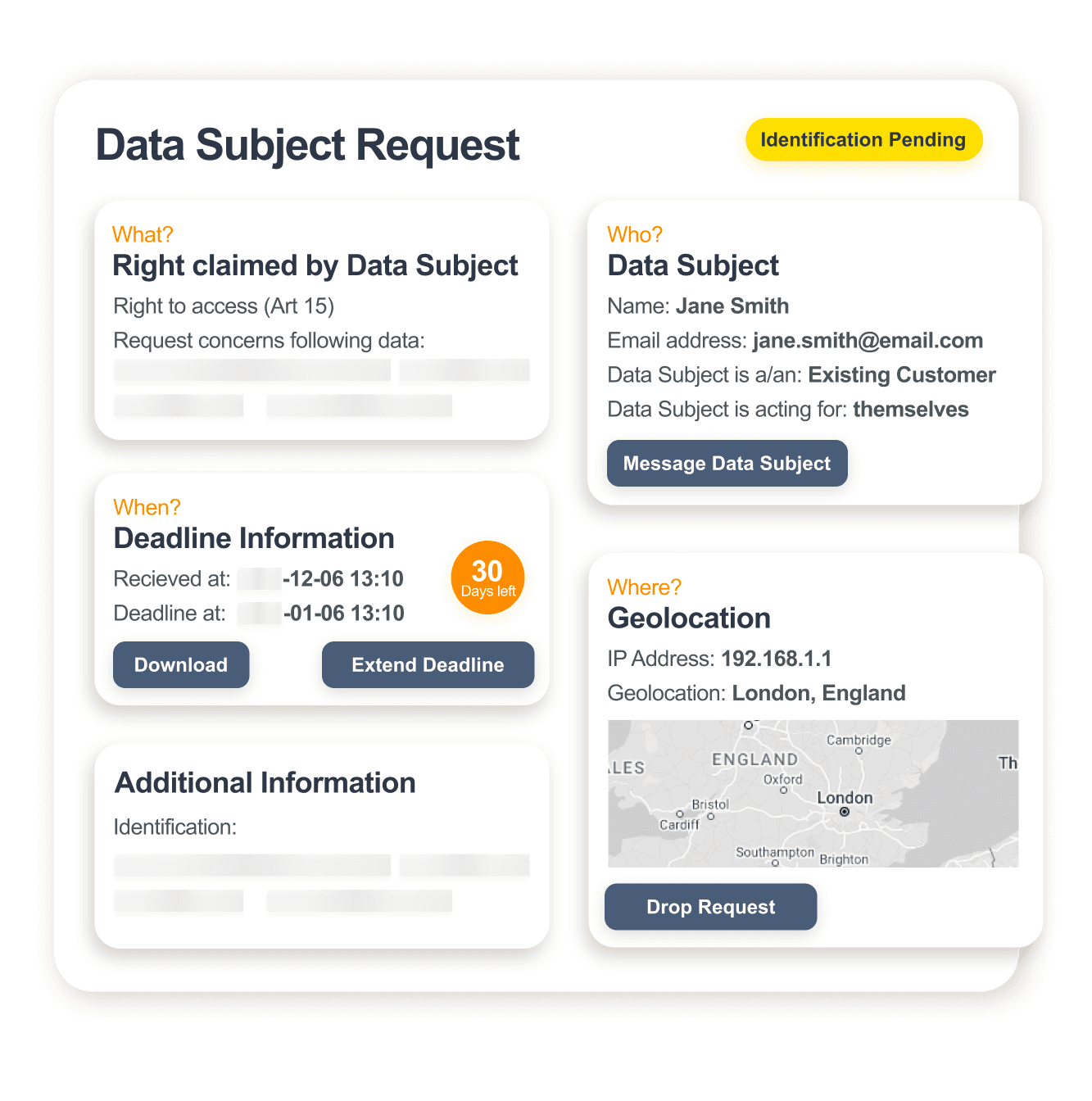
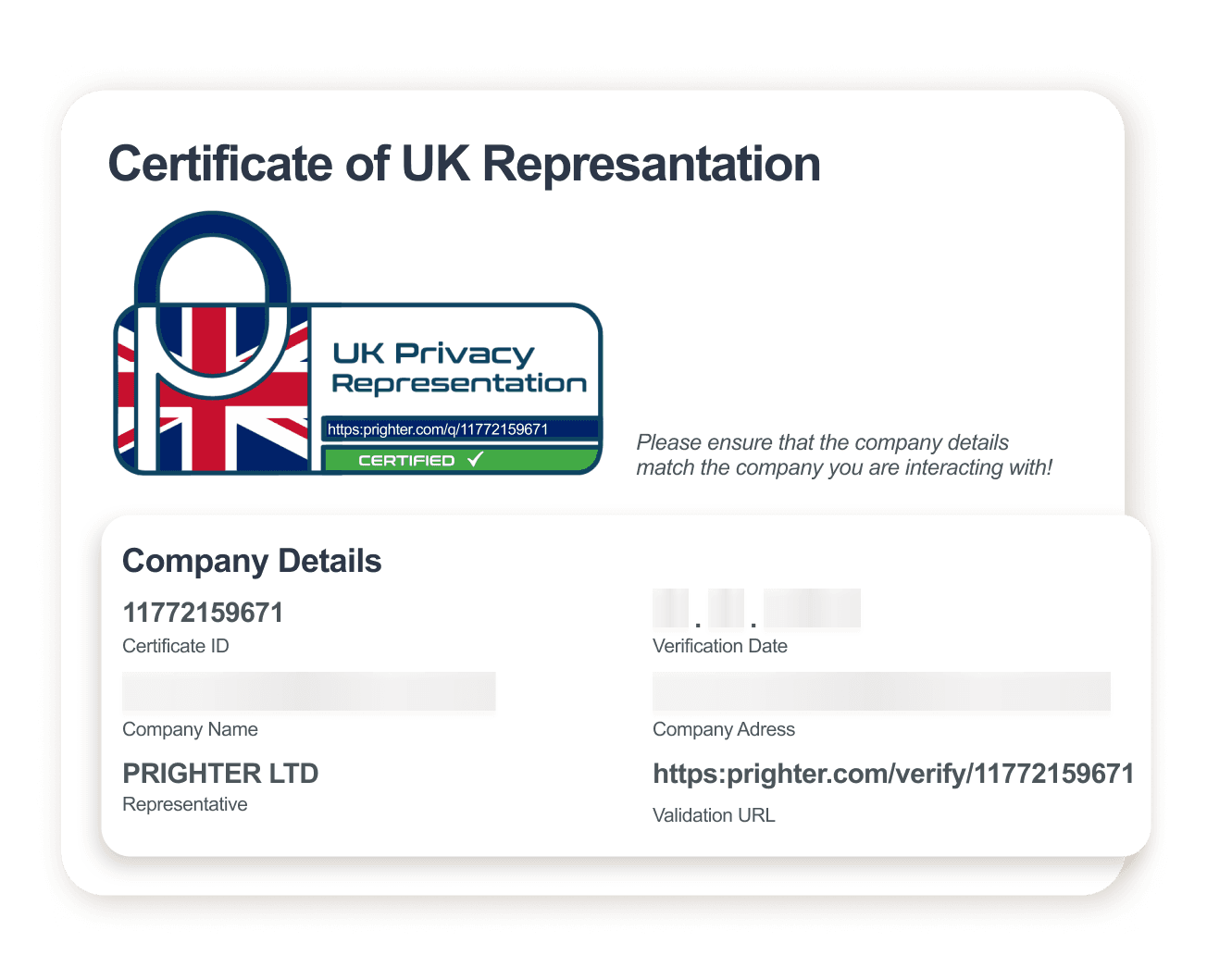
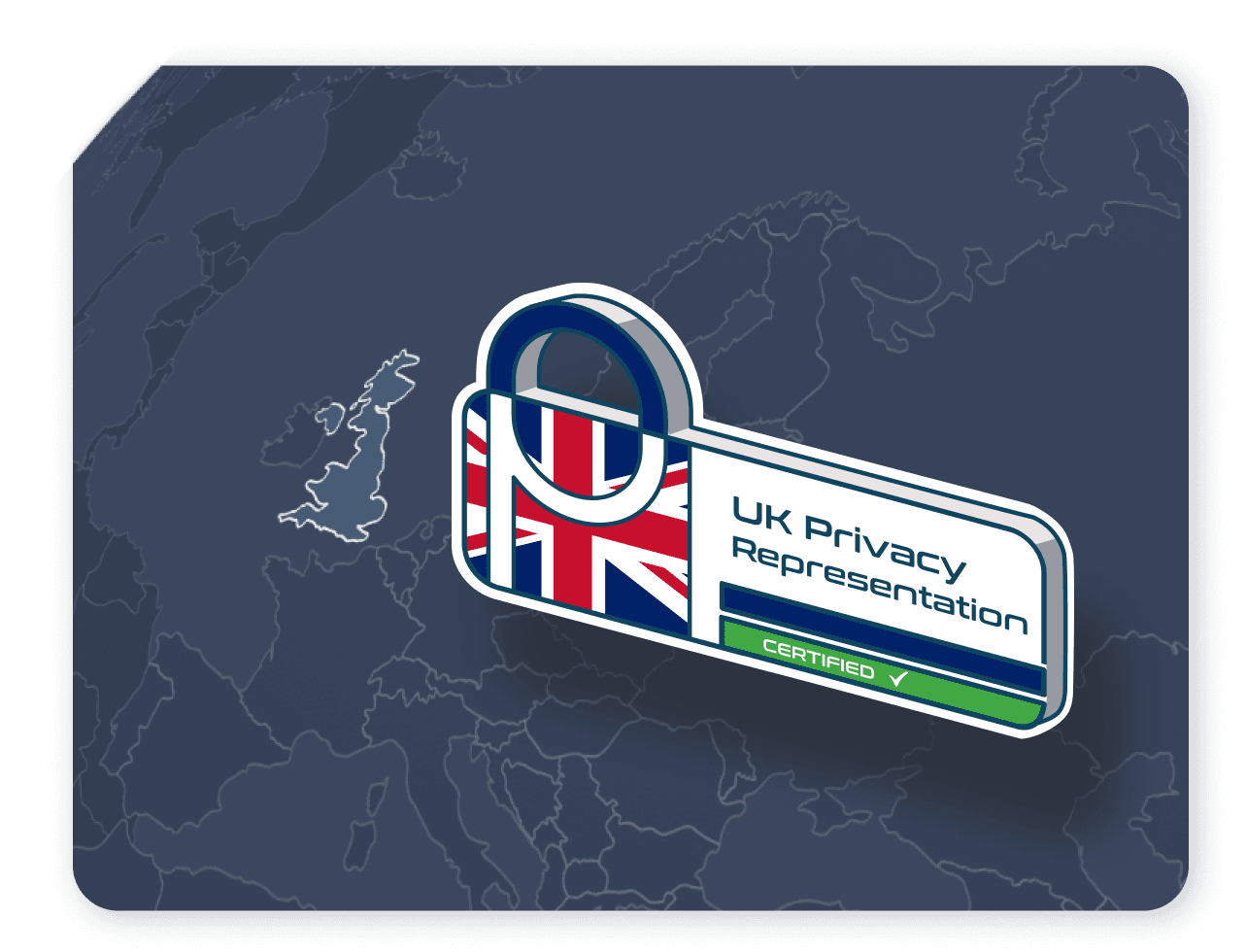
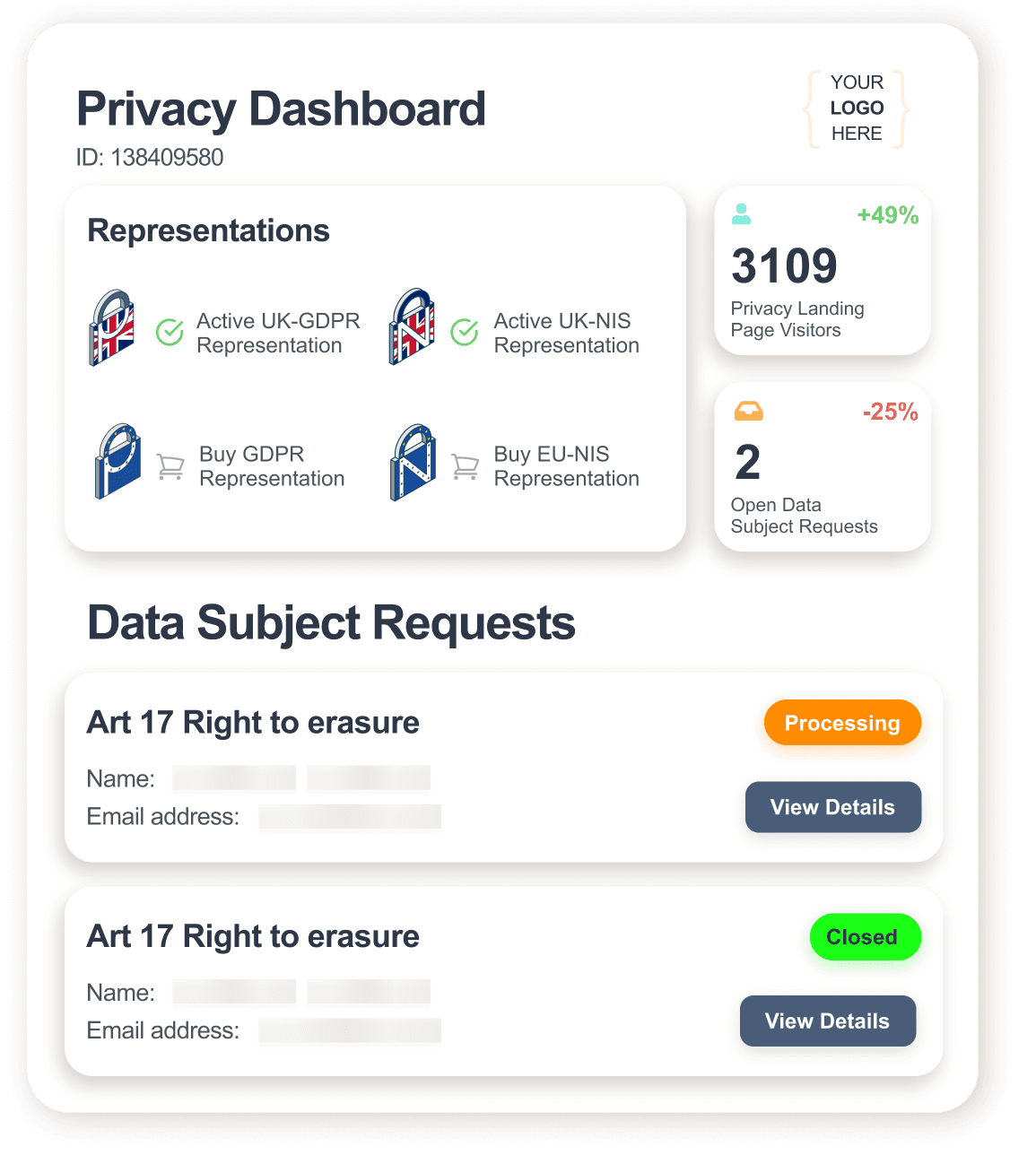
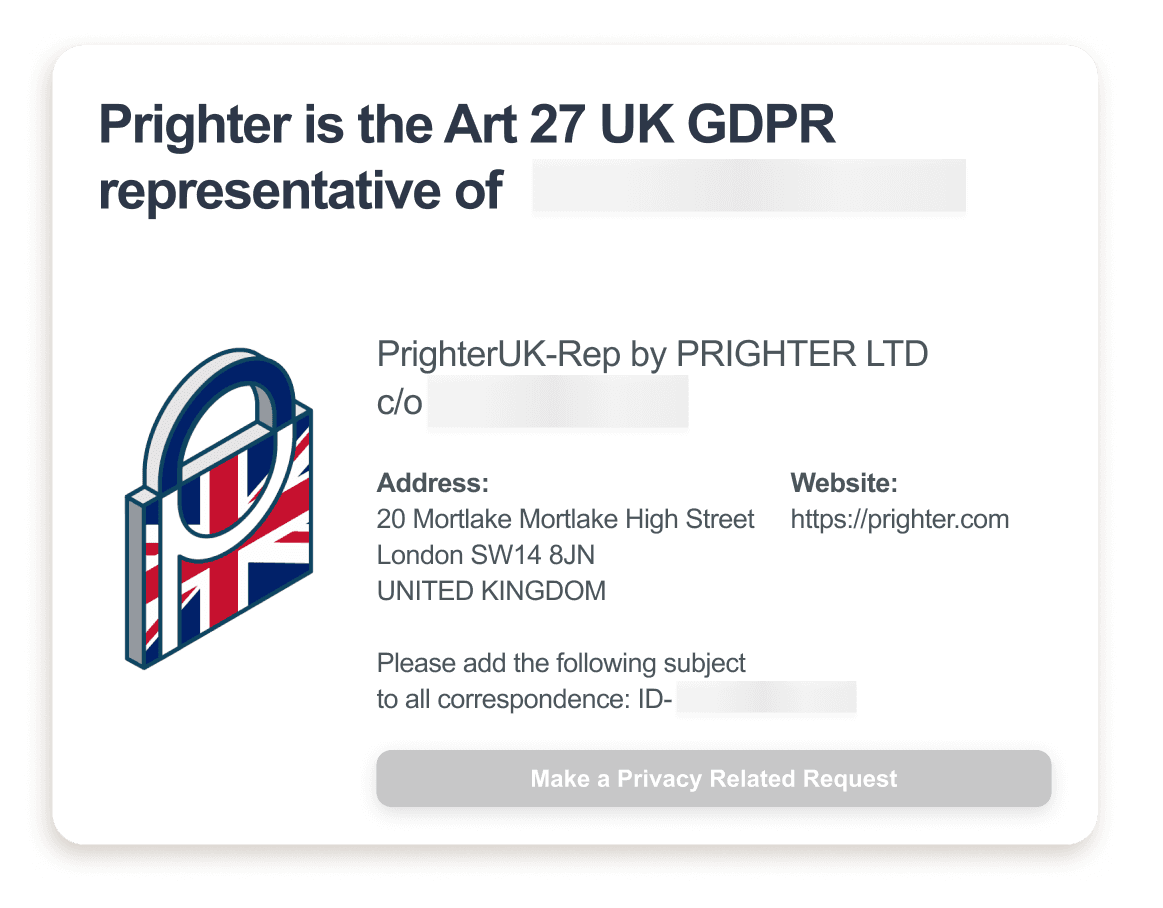
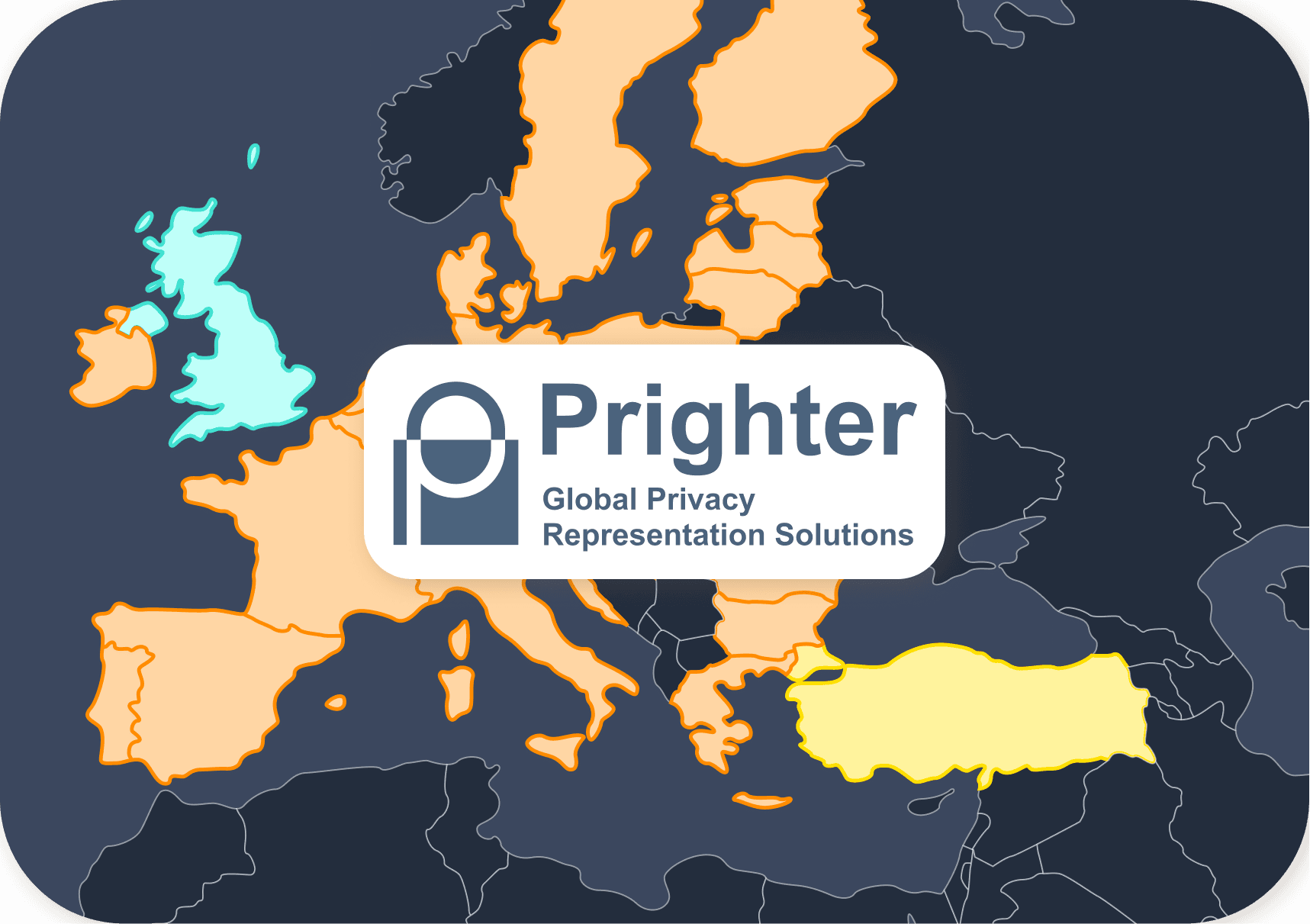
Features and Services
Your all in one UK-Representation
Addressee for Data Subjects in the UK
Be ready to reach out to the UK market by relying on our team of experts to be your local point of contact for UK data subjects. Gain trust with UK stakeholders and benefit from solutions that enable your business to operate in the UK market in a privacy compliant way together with a reputable representative. Prighter’s proprietary Data Subject Request Solution is designed to simplify and manage the lifecycle of any privacy request for you and your customers, saving you time, resource and money and substantially reducing your compliance risk.
Trusted contact for the ICO
Prighter is your trusted point of contact for the Information Commissioner’s Office (ICO). Our experienced and high qualified team acts on your behalf and guides you through any interaction with the UK’s data protection authority. We serve as your first line contact in dealing with regulatory requests and support you with the right response. In addition, our Prighter Authority Case Management solution gives a structured and transparent means of managing communication with the regulator.
Your Boots on the Ground with Local Knowledge
Rely on our highly qualified and experienced local team to enable you to deal with privacy related matters and requests from data subjects and the ICO. Prighter ensures that the role of the representative is fulfilled by a team of knowledgeable lawyers and privacy professionals in the UK so you can be confident to outsource UK privacy to a reputable and trustworthy representative to support your business is meeting the highest standards of privacy compliance. With the knowledge of our local team we are able to support you with updates and news on the development of the UK data protection regulation post-Brexit.
Privacy Management Suite
By appointing Prighter as your representative you get access to the Prighter Privacy Management Suite tailored to the requirements of the UK GDPR, enabling you to leverage a tech enhanced representation. Your dedicated privacy dashboard and compliance landing page is hosted by us and is individual to you. Use it as your shop window for the UK by adding your branding and displaying your privacy-related documentation and certifications. Interactions with data subjects can quickly and effeciently be managed through our proprietary Prighter Data Subject Request Solution which channels, structures and filters all incoming privacy requests in one place. Additionally, requests from the ICO can be managed through our Authority Case Management and incidents can be classified and reported through the Prighter Breach Solution.
Unlock Business Potential
Trust is your business enabler. Prighter helps you gain trust with your client base and your partners by showcasing your GDPR compliance on the compliance landing page. In addition to that we provide you with Prighter certificates which can be conveniently included on your website or used in any other format to gain trust in all channels.
Global One-Stop-Shop
Prighter is committed to serve you with representation services around the world. The concept of privacy representation has increasingly become a basic data protection principle that has now been reflected in privacy regulations around the world. Reach out to new markets with ease and comfort with the support of Prighter. By providing representative and other privacy-related solutions across a number of jurisdictions, Prighter enables you to address global markets in a compliant way. Demonstrate your commitment to privacy-related compliance across multiple territories and show your clients and partners that you care about the requirements of their local data protection regimes. Focus on exploring new markets with the peace of mind that privacy is built into your business.
How it works
Sign-Up for your subscription and fill out your company information with just a few clicks.
We assess your privacy requirements and notify you when we have verified your account to start your free trial.
Log in to your client area and integrate your personalised UK-Rep privacy policy snippet into your website.
Enjoy your UK-Rep services and demonstrate your compliance with UK privacy laws to customers, partners and the ICO.
UK only
EU & UK
large
Large (250-749 employees)growth
Growth (< 10 employees)small
Small (10-49 employees)medium
Medium (50-249 employees)growth
Growth (< 10 employees)small
Small (10-49 employees)large
Large (250-749 employees)medium
Medium (50-249 employees)enterprise
Enterprise (750+ Employees)enterprise
Enterprise (750+ Employees)792€/month
